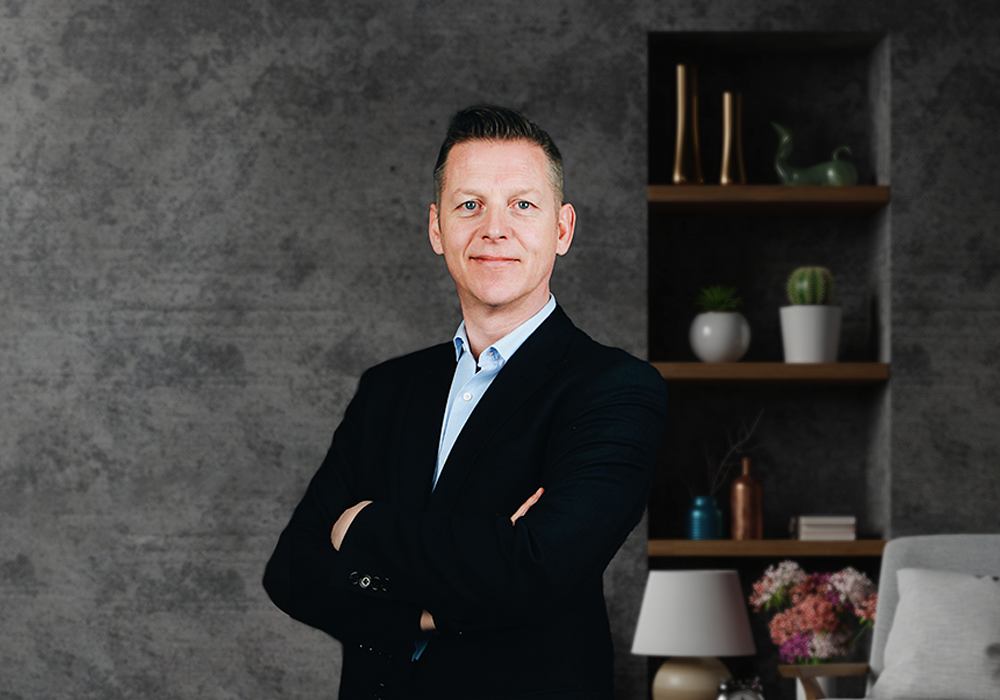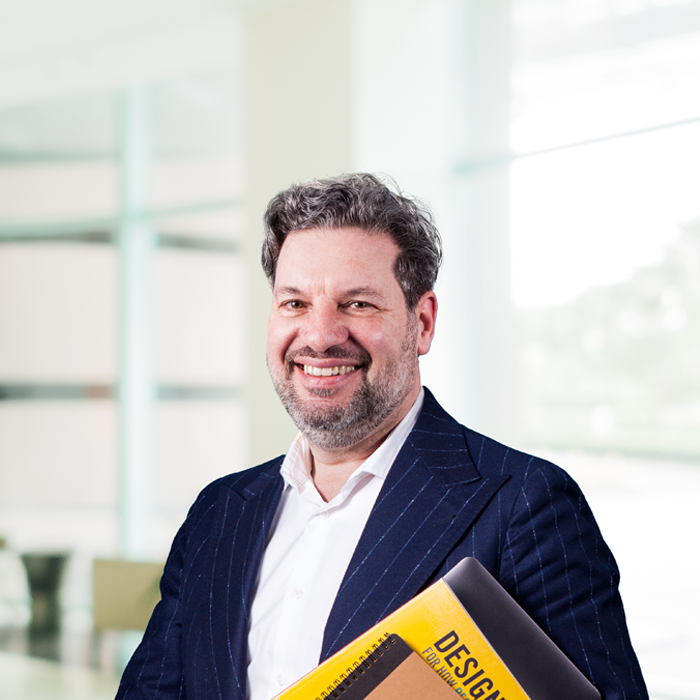Perspectives on the skills obsession: Raf Seymus

Constantly upskilling, reskilling and acquiring new skills to keep up in a world that is changing rapidly; that’s considered normal nowadays. How do experts view this skills obsession? And how can training providers capitalise on the opportunities this brings?
In a series of four interviews, I talk with leading names in the field.
Raf Seymus from Stellar Labs sees good opportunities for the learning & development community in the skills obsession. It is essential for learning providers to understand how learning really works. And knowledge should be relevant.
“If people don’t know how knowledge relates to their work, they won’t do anything with it. Help them with the transition to the workplace. It’s crucial for an effective learning path.”
Who is Raf Seymus?
• 1967 • Lives in Antwerp (Belgium) with his partner • Education: Bachelor Orthopedagogy • Company: Stellar Labs (Antwerp) • Role: Co-founder and CEO • Loves: travelling, reading, hiking, cycling, music and modern art •
Why are up- and reskilling at the centre of attention these days?
“First of all, there’s a serious shortage of skilled talent. And that’s across all types and skill levels of the workforce. Companies struggle to find and hire the right talent. That will only become worse in the coming years. By 2030, companies worldwide will have a shortage of 85 million people, which is the same as the population of Germany. That is a huge problem.”
What can we do about this?
“It means we have to keep people on board. We must also ensure they can follow all developments and changes that are taking place in the world and in our companies. Many people need to learn new skills and be retrained. The World Economic Forum has calculated that one billion people will need to be retrained by 2030. A huge number.”
Why is this happening now?
“I think there are several reasons. First of all, the baby boom generation is retiring. Secondly, partly due to COVID-19, many people are switching companies.
And then there is the rapidly changing world: think not only about sustainability and climate change, but also about technologies that are developing very quickly. Companies have to deal with this too. Changing strategies and business models and a lot of competition on a global scale: this all means that companies have to adapt much faster than twenty or thirty years ago. This is also creating a great need for effective training methods.”

So, you do recognise the skills obsession?
“I understand there’s a skills obsession and I think it’s also appropriate to obsess about tackling it. We talk to many companies, from SMEs to very large companies, and everywhere they deal with the same problem. They have invested a lot in technology, content platforms and educating people, but they do not see the change in the workplace.”
Why is that, according to you?
“Research shows that only 12 to 15 percent of people apply the skills in which they’ve been trained. That means about 85 percent of the investment in training is lost completely or to a large extent. In addition, the way people are trained is not always effective.”
How does this subject play out in Belgium specifically?
“We see many customers struggling with skills. Which skills will they need in the coming years? And how to effectively upskill their staff? There’s also a major shortage of technical talent in Belgium. To give you an idea: we have 2,000 people in Belgium graduating in IT every year and there are about 15,000 IT vacancies. We used to solve this partly by hiring people from abroad or working together with consultancy firms, but there’s also a shortage there.
On the news they said recently that there are 1.3 million inactive people in Belgium. On the other hand, we have so many vacancies. There’s a major mismatch between the existing vacancies at companies and the people who are inactive for various reasons.”
You responded to this with your previous company Exellys. How did you do that?
“We jumped into that niche. What we did was help companies find young professionals and graduates, and the other way around. In the right manner. Because if you have an engineering degree in computer science, the chance of getting a job is about 99 percent. What matters, however, is that you find a job that matches your personality, talents and ambitions in terms of role and job content.
We also focused on mentoring, training and coaching. By optimally guiding these young people in the first years of their careers, we actually gave them an accelerated career start. So we took that off the company’s plate. We made sure that the people they hired through Exellys developed very quickly and performed independently and at a high professional level within a short period of time.”
Was that guidance also aimed at more interpersonal skills?
“Yes, because even as a technical employee – whether you’re a programmer, system engineer or whatever – you always work in a team and with internal or external customers. So communication skills, such as listening well, asking the right questions and making a good analysis, are essential.”
“You don’t always have to undergo formal training to learn; you’re constantly learning.”
What are the key pitfalls for learning providers when it comes to the skills obsession?
“I think it’s a big mistake to expect technology on its own will solve the problem. People won’t learn automatically and autonomously if you make a shiny tool with a lot of content. Learning is a process that must be supported. Often there’s a lack of practice opportunities. A lot of knowledge is exchanged, but people don’t know how that knowledge relates to their work without practising it. You really need to make sure that the transfer of the knowledge to the workplace takes place. I see at many companies that this is not their focus, while it’s crucial for an effective learning process.
You should start by really understanding how learning works in people’s brains and bodies. Then you look for technology that supports this process instead of the other way around.”
What best practices can you share?
“Basic repetition is crucial in order to acquire skills. Repeat the material over time, opt for a modular approach and make sure people don’t get a cognitive overload. The learning topic should be connected to what people are doing, because that’s what makes it relevant. What do people benefit from this training and how do they apply the knowledge in the workplace? These are all things to take into account when designing a programme.”
Can you zoom in on a specific customer case?
“Together with the University of Antwerp, we conducted research into the use of data during the learning process. For this we used the aNewSpring platform. What we wanted to know was: how can we use that data to stimulate people in their learning process and achieve an even better learning effect and transfer to the workplace?”
Have you also researched this in practice?
“We’re applying the results of this research to a leadership trajectory for about 700 international leaders of a large Belgian company. We do this in collaboration with the Antwerp Management School. We collect data throughout the entire learning process. The users – the executives of the company – get feedback about where they are and also give themselves feedback. We feed that data back to the users, so they can improve what they do, and to the trainers, so they can adjust their design if necessary.”
That sounds promising!
“This is where we need to go with L&D at large companies. User feedback is so important. We can collect a lot of feedback within a learning path if it’s supported by a learning platform. We not only ask what users thought of the training, but we also use that data to stimulate and motivate them during the learning process: ‘maybe you can do this differently’, ‘we see that you’re slacking there’, ‘look at this or that’. This increases the effectiveness of the learning journey and the connection to the workplace.”
Are companies open to this?
“I see a change of mentality taking place in large companies. They’re increasingly focusing on research into learning and they’re looking for solutions that really work. This creates an opportunity for the L&D community: to apply what has been proven to work instead of creating new functions that may work.”

Before working in the field of learning & development, you worked in another field. What was your original profession?
“I have a background in pedagogical sciences. I started my career in the shipping world long ago as a freight forwarder in the logistics sector. Then I moved to the social sector. There I worked with young people with a difficult home situation who needed help. I did that for a long time, so I learned a lot about coaching people and dealing with people in difficult situations.
Then, actually by accident, I switched to an HR function within the technical sector. I didn’t know much; I could work with a computer, but that was about it. I found the tech sector really exciting, because everything moves so fast and there are so many cool things possible. It was a good match for me, because here there was a great need for social and communication skills to guide people as well.”
Did you come into contact with L&D there?
“Yes. I also received questions from many people in the tech sector such as ‘can you help me achieve my goals/acquire a more successful career/speed up my onboarding process?’ This is how I first started working with L&D. But it wasn’t until my company Exellys that I got really interested in it, because it was such a big part of our business model. Clients saw that our consultants moved much faster than their own people who received less coaching and training. They asked me why that happened and it got me thinking. I wanted to show the value we add in an objective way. To do that, I had to learn more about how learning works. How does the brain work, how do we record information and how do we convert it into skills? How does our memory work, how do things go from short-term to long-term memory? A very interesting domain.
And then I met Stella Collins, an expert on learning. I read her book and thought: wow, she has the knowledge that I lack. I contacted her and six months later Stellar Labs was born.”
You’ve been an entrepreneur for years now.
“Yes indeed, just like both my parents. Coming up with an idea, testing it on the market, developing a service and then developing a product is the best thing there is.”
What skills would you like to learn yourself?
“Honestly, I’m learning so much now by doing my job and working with the team. For example in the field of product development. For me that is a very new topic, so the learning curve is very steep. You don’t always have to undergo formal training to learn, you’re constantly learning. But wait, I almost forgot, I’m currently following a training about investing and cryptocurrencies. For me it’s so natural to keep learning that I sometimes forget that I am following a course.”
